- Home
- James Hadley Chase
1981 - Hand Me a Fig Leaf Page 3
1981 - Hand Me a Fig Leaf Read online
Page 3
Abe Levi had warned me that Alligator Lane wasn't sign-posted. He had told me to look out for d narrow turning off the highway, half concealed by sparkleberry bushes. By taking it slow with no traffic to bother me, I came upon the turning and swung the car onto a dirt lane, twisting and turning like a dying snake and bordered either side with dense forest. After a couple of miles, the lane widened: a place where trucks could wait before driving down the one-way lane to the highway.
I knew I was approaching Jackson's cabin by the distant sound of the croaking of frogs. I kept on, then the lane narrowed again and turned sharply to the right. I edged the car forward and before me was a wooden cabin, a water-well and a bucket near the entrance door, a bench under one of the grimy windows and a frog-barrel.
I had arrived.
I stopped the car, cut the engine, then tapped the horn. Nothing happened. The only sound was the croaking of frogs. I waited, then tapped the horn again.
Still nothing happened.
I told myself that Fred Jackson was out hunting frogs. I got out of the car. The air was steamy hot.
The trees cut off any breeze that might have been around. The continuous frog noise grated on my nerves.
There was something almost human in that noise: like very old men clearing phlegm from their throats.
I lit a cigarette as I studied the cabin. It had been well constructed in pine-wood. From the look of the outside, it would have a big living-room and probably two bedrooms.
I saw the front door stood ajar.
The heat was beginning to make me sweat: that and the frog orchestra and the loneliness of the place increased my tension. There was an eerie atmosphere that hung over the place that I could feel.
I wandered to the front door and rapped. Nothing happened, so, after rapping again and waiting, I pushed the door open. The shrill squeak of rusty hinges gave me a start.
I peered into the gloom of a large room, furnished with heavy junk you see in market auctions and which no one, these days, wanted.
I saw Fred Jackson sitting at the big table. It had to be Jackson because the old bearded man at the table had no legs. Before him was a plate of some kind of stew. I couldn't see much of it as it was covered with a canopy of excited blowflies.
My eyes shifted to an enormous brown and green bullfrog that sat at the far end of the table, watching the blowflies. It looked at me with glittering black eyes, then leapt into the air, coming in my direction, making me duck. It landed on the floor with a plop and was gone.
"Mr. Jackson,” I began, then stopped.
The man at the table continued to sit motionless.
By now, my eyes were growing accustomed to the gloom. I moved into the room.
"Mr. Jackson. . .?"
The blowflies buzzed, lifted, then resettled on what was on the plate.
Then I saw blood trickling down Jackson's face, slowly and congealing.
I saw the bullet-hole in the middle of Jackson's dirty forehead.
He was now as dead as his son, but much more neatly killed.
chapter two
I paused in the open doorway of the sheriff s office and looked around. The scene was familiar.
You'll see it again and again on TV movies: the gun-rack; handcuffs hanging from hooks; the two desks and three unoccupied cells.
An atmosphere of inactivity and boredom hung over the office like a mantle of dust.
At the big desk facing me, Sheriff Tim Mason, according to the plaque on the desk, sat like an enthroned Buddha. It seemed to me only his soiled khaki blouse, on which was the sheriff s star, and his trousers held his fat together. He was possibly the fattest man I have seen and, what was more, his flushed and veined face, bloodshot eyes and the sweat dripping from under his Stetson told me he was a bottle-hitter.
At the other desk was what seemed to me a blue-eyed boy who could have been Mickey Rooney's double when Rooney was playing juvenile roles. The plaque on his desk told me he was Deputy Sheriff Bill Anderson.
Sheriff Mason stared at me as if he were trying to get me in focus. Deputy Sheriff Anderson got to his feet. He was pintsize, but he had plenty of beef and muscle around his shoulders.
"Something I can do for you?" he asked with a hesitant smile. I guessed he would be around twenty-three or twenty-four years of age.
I moved into the office and to his desk.
"Reporting the murder of Frederick Jackson of Alligator Lane," I said.
Deputy Sheriff Anderson reared back as if I had pasted one on his chin.
"Who the hell are you?" Mason demanded in a loud, bullying voice.
I took out my wallet, selected one of my business cards and, moving over to him, put the card on his He picked up the card with a shaky hand, peered at it for a long moment, then managed to get the print in focus.
"A goddamn peeper!" His fat face turned vicious. "I don't like peepers! What are you doing in my town?"
"I am reporting the murder of Frederick Jackson, the frog-fanner," I said loudly and distinctly.
He read the print on my card again. What I had said apparently hadn't penetrated.
"I don't like peepers," he repeated. "I won't have them in my town. Get out and stay out!"
"I am reporting the murder of Frederick Jackson," I said, raising my voice a tone.
Like an elephant rising off its knees, he got to his feet and came lumbering around the desk.
"You handle this jerk, Bill," he said. "Get rid of him. I've got business up the road," and, moving by me, he waddled out into the hot sunshine and out of sight.
I picked up my card and put it on Anderson's desk. "Is this your usual routine?" I asked.
Anderson shuffled his feet, read my card, stared at me, then shook his head.
"You've come at the wrong time, Mr. Wallace. The sheriff has to have his medicine at this time and, until he has had it, he doesn't absorb facts."
"Doesn't he keep a bottle here?"
"He likes to drink in company. What did you say you were reporting?"
I restrained my impatience with an effort. I told myself I was dealing with hick people in a hick town.
"Frederick Jackson has been murdered."
He flinched.
"I thought you said that, but I can't believe it. Are you sure?"
"He's dead. He's been shot in the head. There's no gun, so someone shot him," I said patiently.
"You've seen him?"
"Just come from his place. You'd better get him to the mortuary. His cabin's like an oven and the blowflies are having a ball."
He turned pale under his tan and sat down abruptly.
"Murdered! This is the first murder we have ever had up here," he muttered.
"Well, you have one now. It'll make a change."
"Jesus! Murder!"
I began to feel sorry for him. He was too young to be a deputy sheriff. He probably had little experience of police-work. He could deal with thieving, parking problems, drunkenness and maybe an occasional rape, but murder would be way out of his league.
"I suggest your first move is to call the State police," I said in my soothing voice. "They'll handle it."
His eyes popped wide open.
"I can't do that. Sheriff Mason won't have anything to do with them! He's been sheriff here for twenty years and has never called the State police."
"Now's the time," I said. "You'll have to call them sooner or later, so call them now."
He rubbed his chin with the back of his hand. I could almost hear his brain creak as he thought and I felt more sorry for him. He was being loyal to the old rum-dum. He knew, as I did, that if the State police came up here and took one look at Sheriff Mason it would be curtains for him.
"He's retiring at the end of the year," Anderson said, half to himself. "He's been a fine man, but the bottle caught up with him. He's liked by everyone. They all look the other way when he gets stoned. If the State police . . ." He again rubbed his chin and looked helplessly at me.
"I'm reporting a
murder," I said. "That lets me out. What you do is your business."
He looked again at my business card.
"You work for Colonel Parnell?"
"That's what the card says."
"It's a marvellous agency. The best."
I was getting bored with him.
"Yeah. It's the best."
"I heard there was a vacancy for an operator. I wrote in." Anderson again rubbed his chin. "But it was filled. I'd give a lot to work for Colonel Parnell. Do you think there'll be another vacancy?"
"Maybe. It depends on the applicant. The colonel is always on the look-out for a smart operator."
"The pay is pretty good, isn't it?"
"Sure."
"It would be a big thing in my life to get a job with Colonel Parnell." He did the chin-rubbing act again, not looking at me. He was dreaming ambitious dreams. "I've had it up to here in this small-time town."
"It's going to be big-time," I said. "Murder always hits the headlines."
He started as if in his dreams he had forgotten he had a murder in his lap.
"Yes. I hadn't thought of that. Jesus! What do I do?"
"Call the State police before Jackson gets full of maggots."
He went a shade paler.
"I can't do that!" He looked beseechingly at me. "What would you do in my place?"
"Well, if I couldn't call the State police, I'd get an ambulance and a doctor and go up there and take a look," I said. "After all, you are only taking my word for it, aren't you?"
He visibly brightened.
"I'll do that," and he reached for the telephone.
I wandered to the door and looked out onto the busy street while he talked on the telephone. The setup seemed to me to be right out of the comics, but it did occur to me, by jollying Anderson along, I could get information of value for my report to the colonel.
When he had finished talking, He joined me at the door.
"The ambulance is coming and Dr. Steed will be with it. He's our coroner." He looked unsteadily at me. "He's pretty old, but he is the most important citizen here, after the sheriff." He fidgeted, then went on, "I guess you have had a lot of experience with murder cases."
I could see he was longing for me to say yes, so I didn't disappoint him.
"We get all kinds of cases: murder, blackmail, kidnapping. I've had my share."
He looked happy.
"I was wondering. Would you come along with me? You could spot clues I might miss."
"I can't do that. Sheriff Mason wouldn't approve. He doesn't dig peepers. I don't want trouble with him."
"Oh, he won't make trouble for you. Once he has had his shot, he's a different man. I'm not kidding. You caught him at the wrong time. He'll be pleased to have your help."
"You'd better ask him. How long does he take to get tanked?"
"He won't be around for a couple of hours, but there's no need for me to ask him. You won't know him when next you see him. He's the most popular man in our town when he has had some Scotch."
Just then an ancient-looking ambulance pulled up. There were two coloured men in white coats and a small man with a white beard and long white hair who had to be pushing seventy-eight. He got out of the ambulance and stood looking at us. His face was like a dried-up apple and he moved with a limp.
"This is Dr. Steed," Anderson said and went down to greet the old man.
I waited until Anderson had done his talking, then Steed looked at me with bright, probing eyes.
I joined him and shook his offered hand.
"Old Fred Jackson," he said in a thin, hoarse voice. "That's bad. Murdered, huh? That's worse! Bill has told me about you, young man. We'll be glad of your help. By rights, we should call the State police, but we like to run our little town without outside interference. We will call on your experience."
"I'm ready to cooperate, sir, but the State police will have to be informed. This is murder."
He gave me a sly little smile.
"That's for me to say, young man. Old Fred hadn't much to live for. He could have decided to end his life."
"There's no gun."
"Well, we'll see." Steed limped to the ambulance and got in.
By now the citizens of Searle were standing and gaping. It was something novel for them to see an ambulance outside the sheriff s office, plus the coroner, plus a stranger.
"We'll go in my car," Anderson said.
I joined him in the old Chewy and he followed the ambulance up the main street and onto the highway.
"Has Jackson any relations?" I asked.
"He has a grandson, but no one knows where he is. He hasn't anyone else I know of."
"Did Jackson report to you that his grandson had gone missing?"
"Yes, he did, around two months ago. He sent word by the mailman that he wanted to talk to Sheriff Mason. Well, the sheriff went up there. When he came back, he said Fred was making a fuss about nothing. The kid must have got choked living with Fred and had taken off. Mason said it wasn't worth bothering the State police. They have enough missing people to deal with."
"You said Fred got word to the sheriff by the mailman. Did Fred get mail?"
"I believe so. I wouldn't know." He looked at me. "Think that's important? I mean do you think him getting mail is a clue?"
"Could be. It just struck me as odd that an old recluse like Fred should get mail."
"I could ask Josh: he's our mailman."
"Do that. There's no rush."
By this time, we were driving up the narrow lane leading to Fred Jackson's cabin. The ambulance had stirred up a lot of dust and Anderson had to drive at a crawl.
When he finally pulled up outside the cabin, the two coloured men were getting a stretcher out of the ambulance. I walked to the entrance of the cabin.
Dr. Steed was standing over what was left of Frederick Jackson. Blowflies swarmed around his hat.
The smell in the room made my stomach cringe.
"See, young man," he said and pointed to the floor by the legs of the chair in which Fred was sitting.
"Something you missed."
Lying on the floor, half under the chair, was a small handgun: a .22 Beretta.
"Just as I thought," Dr. Steed went on, a smug expression on his old, wrinkled face. "The poor fellow took his life. Murder?" He gave a croaking little chuckle. "Young man, you should be more careful. It's suicide as plain as the nose on my face."
As an unauthorized observer being told I had started a murder scare by the most important citizen in Searle, I kept my mouth shut, but I did know the gun hadn't been there when I had left the cabin to report to the sheriff. That I knew for sure.
As Anderson and I followed the ambulance, containing the remains of Frederick Jackson down the narrow lane, Anderson said, reproach in his voice, "Excuse me, Mr. Wallace, but I'm surprised you didn't see the gun. I really thought we had a murder case to solve."
"Cheer up," I said, taking out my pack of cigarettes. "You still could have. I lit up and stared through the dust.
"Dr. Steed says it is a clear case of suicide."
"That's what he said."
Anderson began his chin rubbing routine.
"Don't you think it is?"
"Anything can happen in this crazy world. Old Fred was eating his lunch. Then he stopped eating and decided to shoot himself. He promptly shot himself and then hid the gun. After I had found him dead, he took the gun from its hiding-place and put it under his chair, then he went back to being dead again. As I say, anything can happen in this crazy world."
He drove in silence for some minutes, then he said, "You must be kidding, Mr. Wallace."
"The gun wasn't there when I found Jackson. This smells of a fig-leaf job."
"Fig-leaf? I'm not with you."
"Look, Bill, are you really serious that you want to work for Colonel Parnell?"
"Serious?" His voice shot up: "I told you: I'd give anything in the world to get out of Searle and to be one of Colonel Parnell's operators."
"Okay. You cooperate with me and I'll cooperate with you," I said, flicking cigarette ash out of the car's window. "A strong recommendation from me would have a lot of pull. The Colonel is always on the look-out for a cooperative, smart man with police training."
"You can rely on me, Mr. Wallace," Anderson said earnestly. "You just tell me what you want. Honestly, Mr. Wallace, you can rely on me."
"Fine. I just said this is a fig-leaf job. We Parnell operators use a special jargon of our own. When we say it's a fig-leaf job, we mean it is a cover-up job. Since Adam bit the apple, he used a fig-leaf to cover his equipment. Get it? Fig-leaf: cover-up."
"You think Jackson's death is a cover-up job?"
"I know it is. This is murder, Bill. Make no mistake about that. Here's what could have happened. The killer could have been still around when I arrived at the cabin. When I left, he could have returned to the cabin and plaited the gun. I'm not sold on this idea, but it's possible. I like the idea better that Dr. Steed planted the gun. He knew if Jackson had been murdered, the State police would have to be called and that would be the end of Sheriff Mason. So, I like the idea that, when you told him on the phone that Jackson had been murdered, he collected the gun, got ahead of us and planted the gun to give Mason a fig-leaf."
"Dr. Steed would never do such a thing!" Anderson gasped.
"Look, Bill, you're young. These things happen. Old friends are loyal to each other. Why should Steed worry about an old man like Jackson getting murdered: a murder that would get his pal Mason into trouble? A suicide keeps the State police out of it. Anyway, murder is police business, not mine. My business is to find Jackson's grandson. Jackson hired the Agency to do just that. But, remember, Bill, if you really want to work with our Agency, I expect you to cooperate."
"Jesus! This is a bit much for me, Mr. Wallace, but you sure can rely on my cooperation."
"Then all you have to do is to keep your mouth shut and your ears and eyes open." I said, looking at his young, worried face. "I've alerted you, but say nothing, leave all this to Dr. Steed."
Half an hour later, we were sitting around Sheriff Mason's desk: Dr. Steed, Anderson and myself.
I thought as I looked at Mason's fat, benign face that it was remarkable what a pint of Scotch could do for a man. Mason, oozing sweat, now looked like a happy Santa Claus.

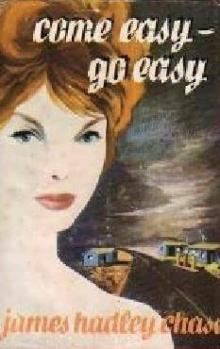 Come Easy, Go Easy
Come Easy, Go Easy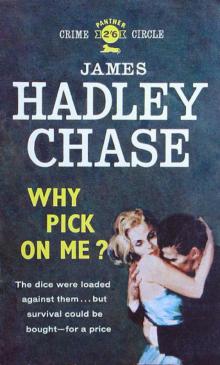 Why Pick On ME?
Why Pick On ME?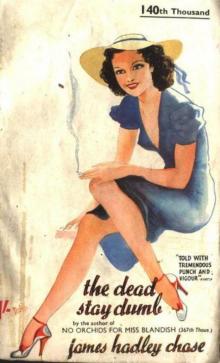 The Dead Stay Dumb
The Dead Stay Dumb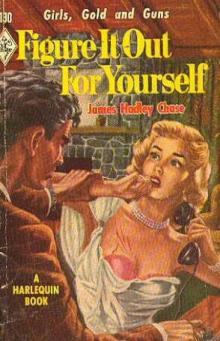 Figure it Out For Yourself
Figure it Out For Yourself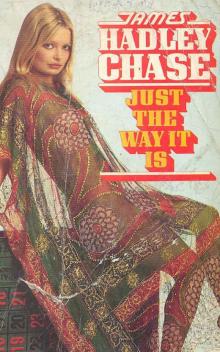 1944 - Just the Way It Is
1944 - Just the Way It Is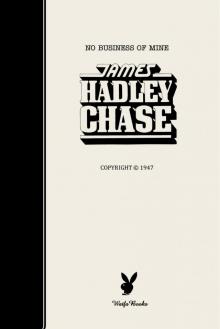 No Business Of Mine
No Business Of Mine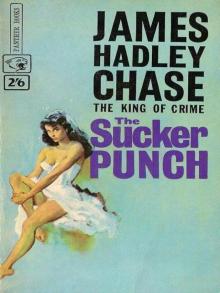 1953 - The Sucker Punch
1953 - The Sucker Punch Cade
Cade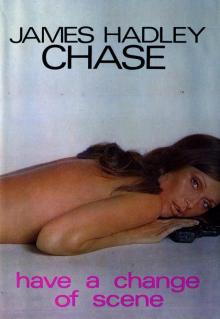 1973 - Have a Change of Scene
1973 - Have a Change of Scene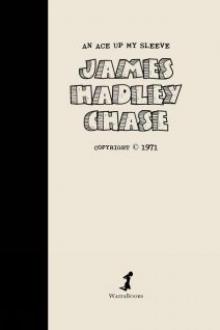 An Ace up my Sleeve
An Ace up my Sleeve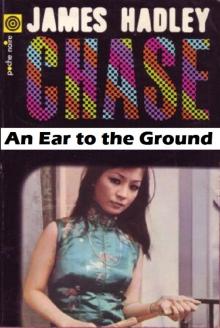 1968-An Ear to the Ground
1968-An Ear to the Ground 1950 - Figure it Out for Yourself
1950 - Figure it Out for Yourself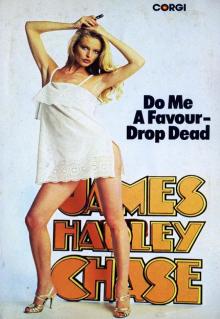 1976 - Do Me a Favour Drop Dead
1976 - Do Me a Favour Drop Dead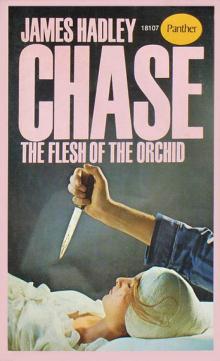 The Flesh of The Orchid
The Flesh of The Orchid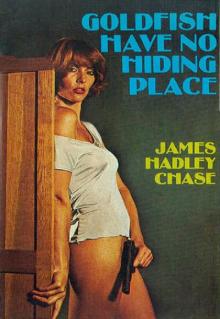 1974 - Goldfish Have No Hiding Place
1974 - Goldfish Have No Hiding Place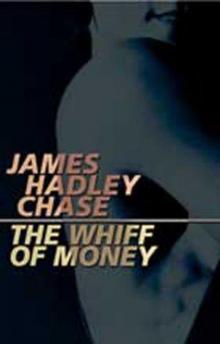 Whiff of Money
Whiff of Money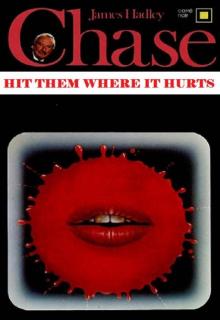 1984 - Hit Them Where it Hurts
1984 - Hit Them Where it Hurts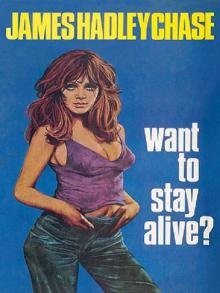 1971 - Want to Stay Alive
1971 - Want to Stay Alive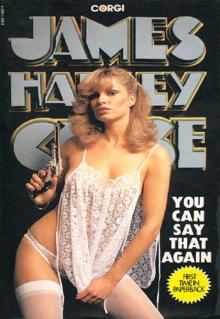 1980 - You Can Say That Again
1980 - You Can Say That Again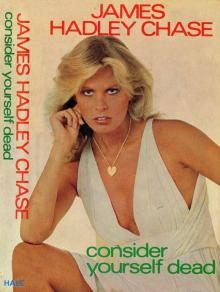 1978 - Consider Yourself Dead
1978 - Consider Yourself Dead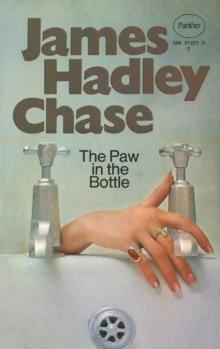 The Paw in The Bottle
The Paw in The Bottle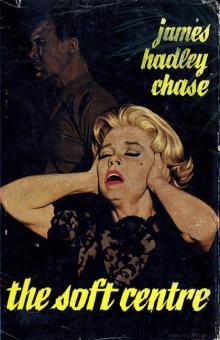 Soft Centre
Soft Centre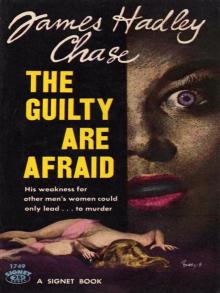 The Guilty Are Afraid
The Guilty Are Afraid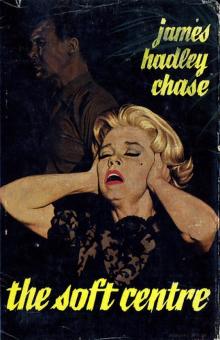 The Soft Centre
The Soft Centre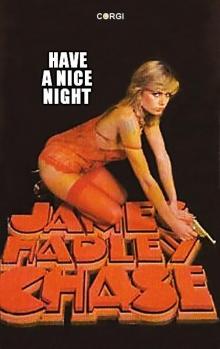 Have a Nice Night
Have a Nice Night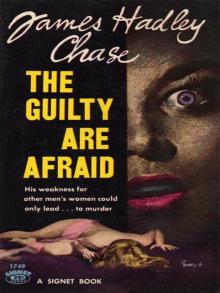 1957 - The Guilty Are Afraid
1957 - The Guilty Are Afraid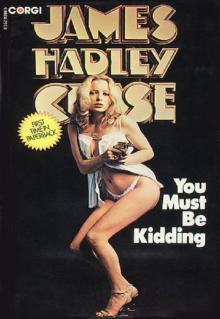 1979 - You Must Be Kidding
1979 - You Must Be Kidding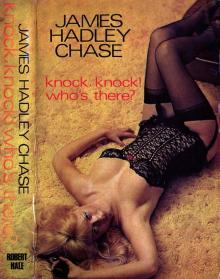 Knock, Knock! Who's There?
Knock, Knock! Who's There?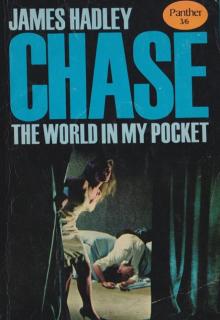 1958 - The World in My Pocket
1958 - The World in My Pocket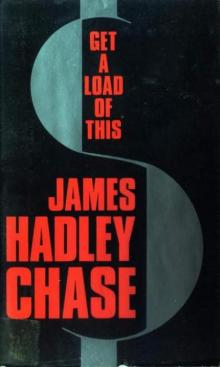 Get a Load of This
Get a Load of This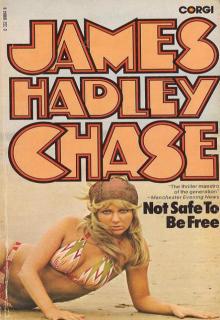 1958 - Not Safe to be Free
1958 - Not Safe to be Free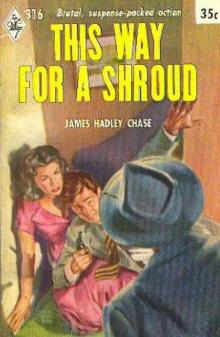 This Way for a Shroud
This Way for a Shroud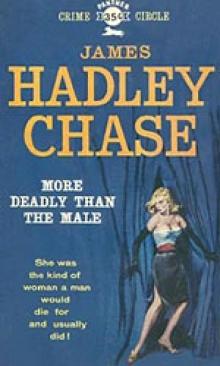 More Deadly Than the Male
More Deadly Than the Male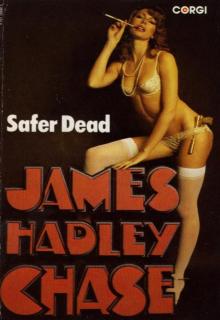 Safer Dead
Safer Dead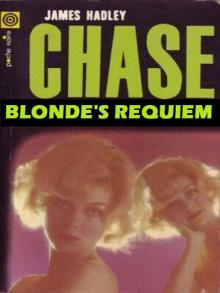 1945 - Blonde's Requiem
1945 - Blonde's Requiem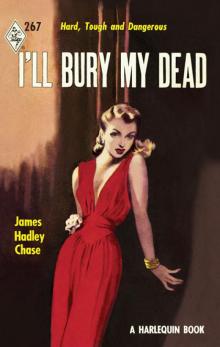 I'll Bury My Dead
I'll Bury My Dead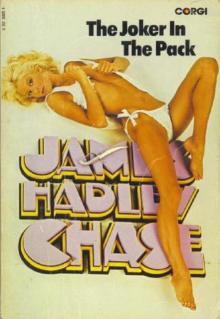 1975 - The Joker in the Pack
1975 - The Joker in the Pack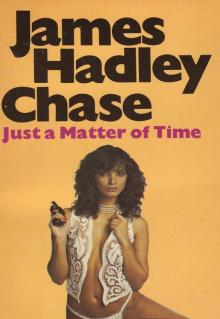 1972 - Just a Matter of Time
1972 - Just a Matter of Time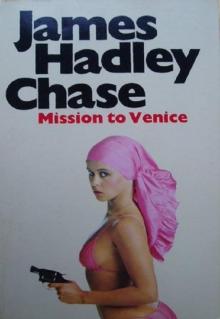 1954 - Mission to Venice
1954 - Mission to Venice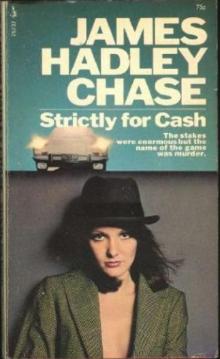 Strictly for Cash
Strictly for Cash A COFFIN FROM HONG KONG
A COFFIN FROM HONG KONG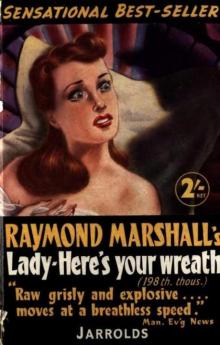 Lady—Here's Your Wreath
Lady—Here's Your Wreath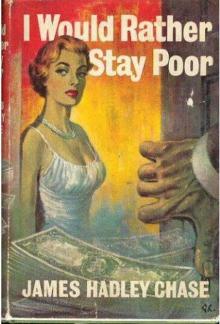 I Would Rather Stay Poor
I Would Rather Stay Poor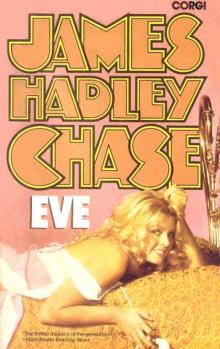 Eve
Eve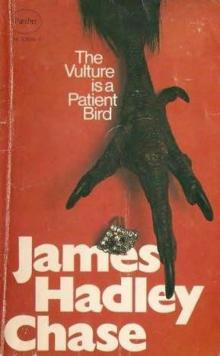 Vulture Is a Patient Bird
Vulture Is a Patient Bird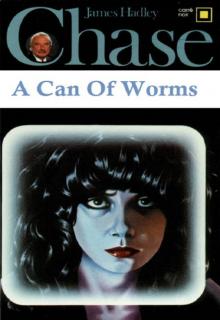 1979 - A Can of Worms
1979 - A Can of Worms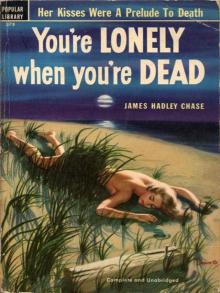 1949 - You're Lonely When You Dead
1949 - You're Lonely When You Dead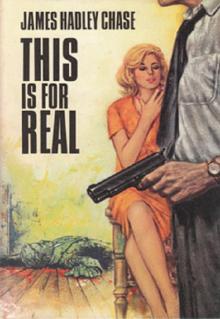 1965 - This is for Real
1965 - This is for Real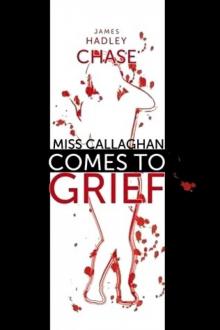 (1941) Miss Callaghan Comes To Grief
(1941) Miss Callaghan Comes To Grief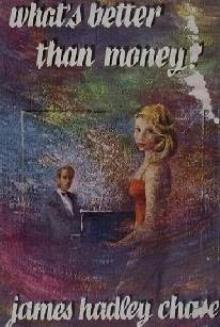 What`s Better Than Money
What`s Better Than Money This is For Real
This is For Real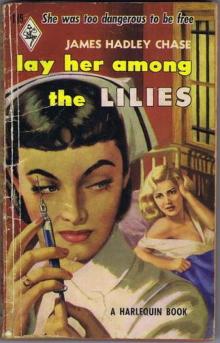 Lay Her Among the Lilies vm-2
Lay Her Among the Lilies vm-2 Knock Knock Whos There
Knock Knock Whos There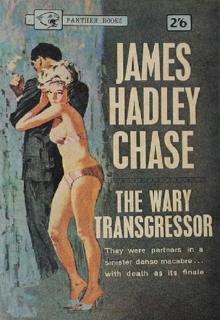 1952 - The Wary Transgressor
1952 - The Wary Transgressor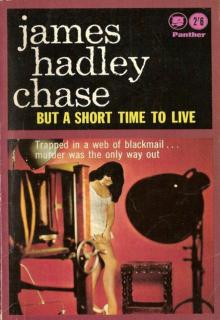 1951 - But a Short Time to Live
1951 - But a Short Time to Live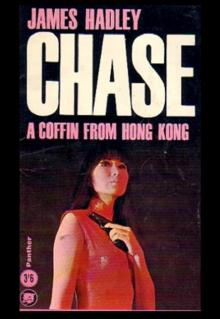 1962 - A Coffin From Hong Kong
1962 - A Coffin From Hong Kong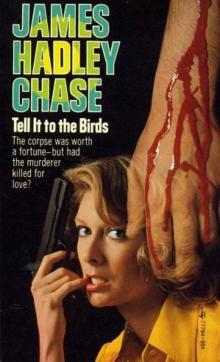 Tell It to the Birds
Tell It to the Birds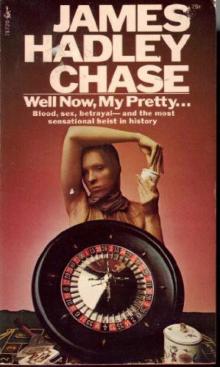 Well Now, My Pretty…
Well Now, My Pretty…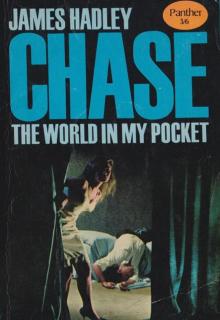 The World in My Pocket
The World in My Pocket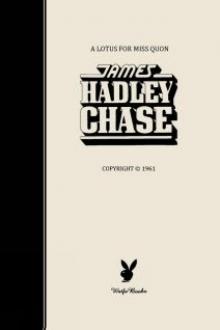 A Lotus for Miss Quon
A Lotus for Miss Quon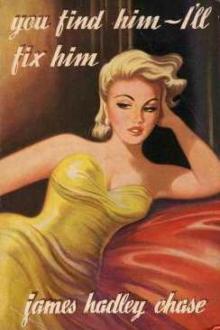 You Find Him, I'll Fix Him
You Find Him, I'll Fix Him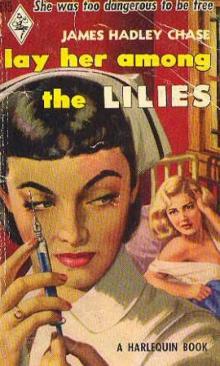 Lay Her Among The Lilies
Lay Her Among The Lilies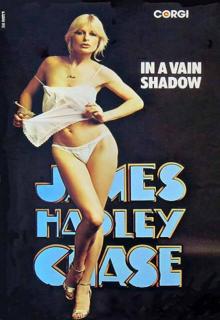 1951 - In a Vain Shadow
1951 - In a Vain Shadow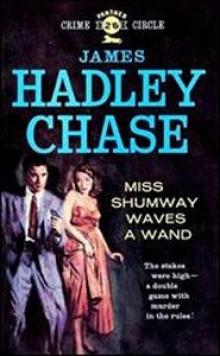 Miss Shumway Waves a Wand
Miss Shumway Waves a Wand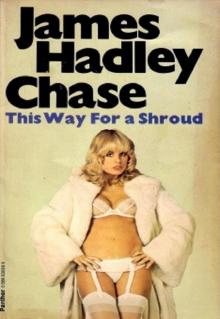 1953 - This Way for a Shroud
1953 - This Way for a Shroud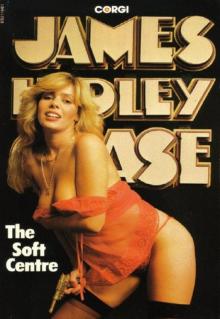 1964 - The Soft Centre
1964 - The Soft Centre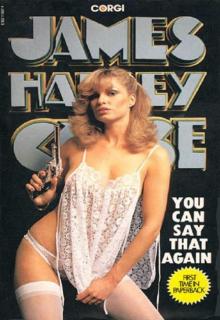 You Can Say That Again
You Can Say That Again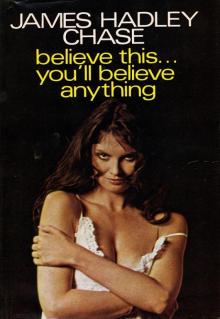 1975 - Believe This You'll Believe Anything
1975 - Believe This You'll Believe Anything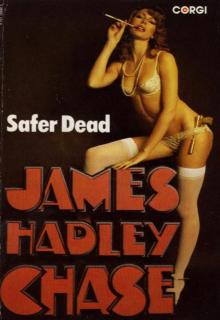 1954 - Safer Dead
1954 - Safer Dead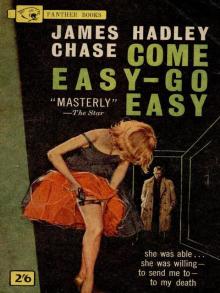 1960 - Come Easy, Go Easy
1960 - Come Easy, Go Easy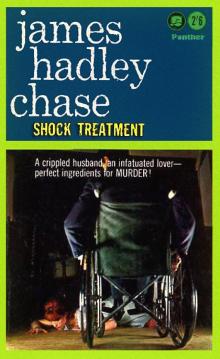 Shock Treatment
Shock Treatment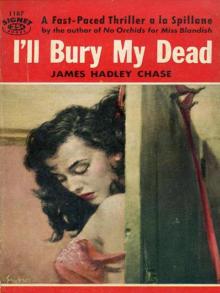 1953 - I'll Bury My Dead
1953 - I'll Bury My Dead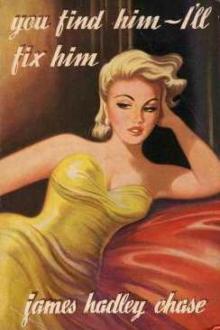 You Find Him – I'll Fix Him
You Find Him – I'll Fix Him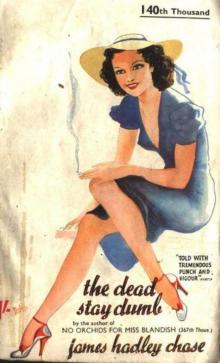 Dead Stay Dumb
Dead Stay Dumb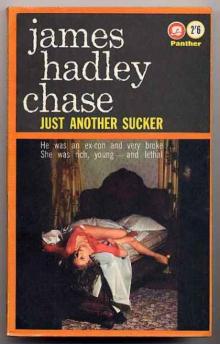 Just Another Sucker
Just Another Sucker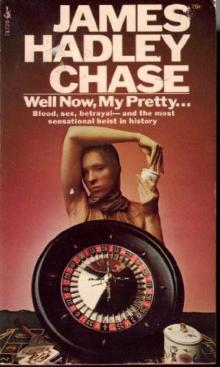 Well Now My Pretty
Well Now My Pretty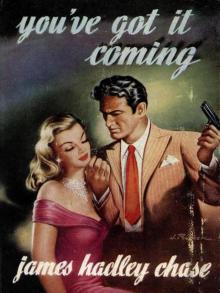 You've Got It Coming
You've Got It Coming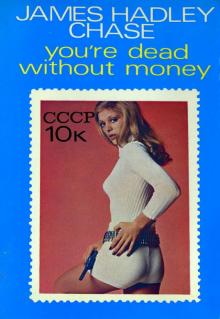 1972 - You're Dead Without Money
1972 - You're Dead Without Money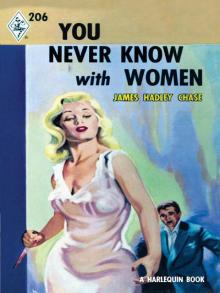 1955 - You Never Know With Women
1955 - You Never Know With Women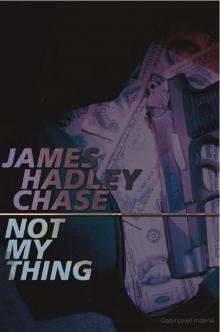 Not My Thing
Not My Thing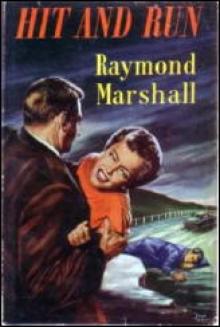 Hit and Run
Hit and Run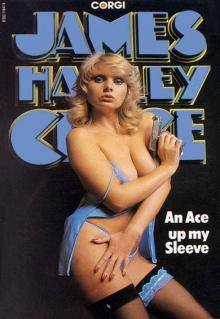 1971 - An Ace Up My Sleeve
1971 - An Ace Up My Sleeve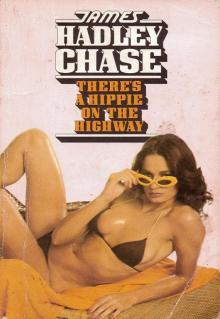 1970 - There's a Hippie on the Highway
1970 - There's a Hippie on the Highway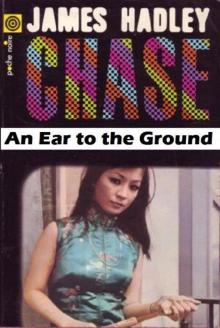 1968 - An Ear to the Ground
1968 - An Ear to the Ground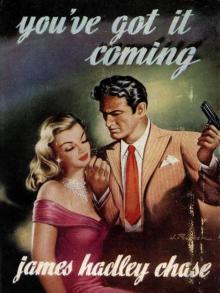 1955 - You've Got It Coming
1955 - You've Got It Coming 1963 - One Bright Summer Morning
1963 - One Bright Summer Morning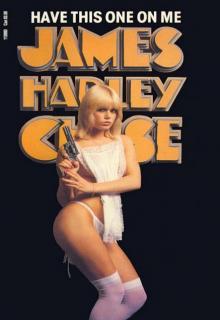 1967 - Have This One on Me
1967 - Have This One on Me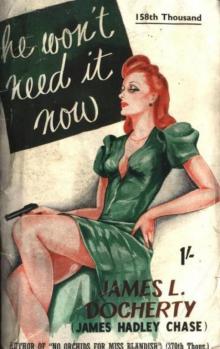 He Won't Need It Now
He Won't Need It Now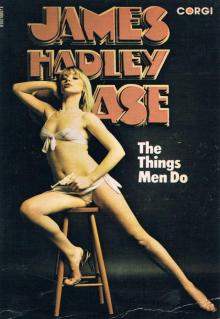 1953 - The Things Men Do
1953 - The Things Men Do Believed Violent
Believed Violent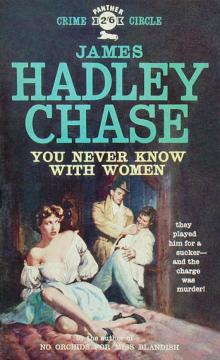 You Never Know With Women
You Never Know With Women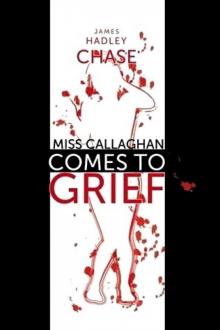 Miss Callaghan Comes to Grief
Miss Callaghan Comes to Grief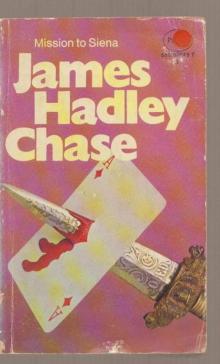 Mission to Siena
Mission to Siena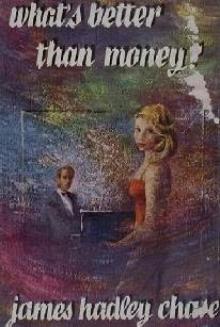 What's Better Than Money
What's Better Than Money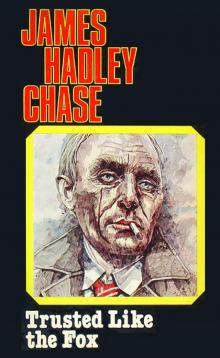 Trusted Like The Fox
Trusted Like The Fox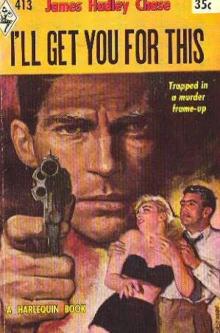 I'll Get You for This
I'll Get You for This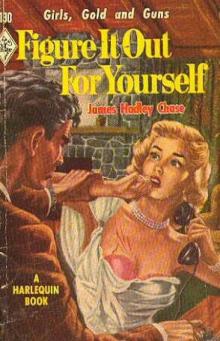 Figure It Out for Yourself vm-3
Figure It Out for Yourself vm-3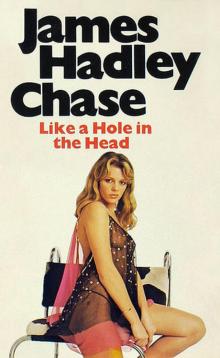 Like a Hole in the Head
Like a Hole in the Head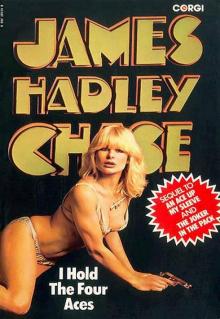 1977 - I Hold the Four Aces
1977 - I Hold the Four Aces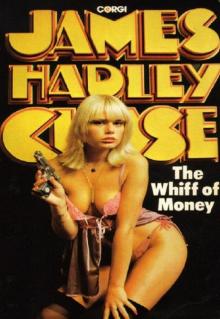 1969 - The Whiff of Money
1969 - The Whiff of Money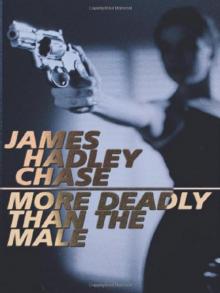 1946 - More Deadly than the Male
1946 - More Deadly than the Male 1956 - There's Always a Price Tag
1956 - There's Always a Price Tag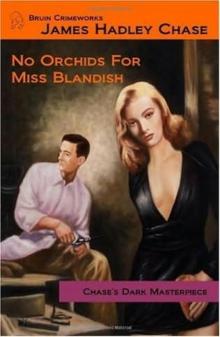 No Orchids for Miss Blandish
No Orchids for Miss Blandish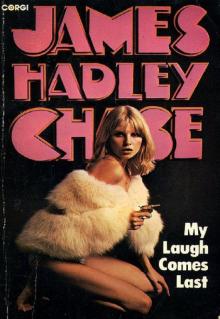 1977 - My Laugh Comes Last
1977 - My Laugh Comes Last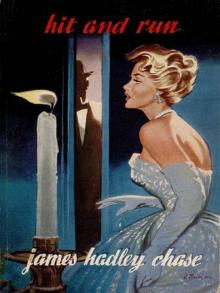 1958 - Hit and Run
1958 - Hit and Run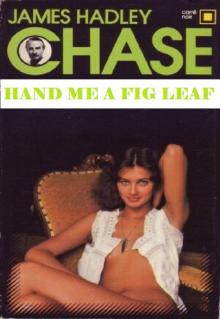 1981 - Hand Me a Fig Leaf
1981 - Hand Me a Fig Leaf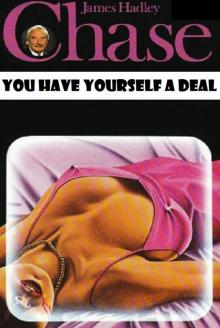 1966 - You Have Yourself a Deal
1966 - You Have Yourself a Deal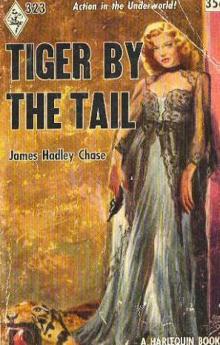 Tiger by the Tail
Tiger by the Tail